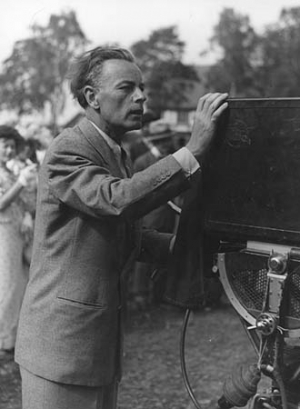Gallery
All Pictures (8)Biography
Paul Martin was born in Maiolana (today part of Hungary) on February 8 1899. Following his school graduation in 1916, he joined in the Austrian army and served as an officer in WWI. After the war, he worked in a pharmacy and had his first small roles in silent films. Supported by director Ludwig Berger, he got jobs as an assistant director for Robert Siodmak ("Voruntersuchung", 1931) and Eric Charell ("Der Kongreß tanzt", 1931). Shortly afterwards, he made his debut as director with the Hans Albers' comedy "Der Sieger" (1932, co-directed by Hans Hinrichs). His second feature film, the musical comedy "Ein blonder Traum" starring Lilian Harvey and Willy Fritsch, turned out to be a box-office hit and caught the attention of US producers. Alas, Martin's American debut "Orient Express" was considered a commercial and artistic failure. Lilian Harvey, with whom Martin was romantically involved from 1931 to 1938 despite his marriage to actress Frauke Lauterbach, unsuccessfully tried to establish him in the US film industry. Thus Martin's Hollywood career ended before it even begun.
Back in Germany, Martin rebounded with "Glückskinder", which became one of his biggest hits: Reminscent of US screwball comedies, the film has Willy Fritsch playing a reporter who spontaneously marries a homeless woman (Lilian Harvey) completely unknown to him. Until 1939, Martin completed three more films starring Harvey: the melodrama "Schwarze Rosen" (1935), the biopic "Fanny Elßler" (1937) and the comedy "Frau am Steuer" (1939). In Spring 1939, Lilian Harvey left Germany for France, and in 1942, she emigrated to the United States. Paul Martin stayed in Germany and specialized in music and operetta films like "Jenny und der Herr im Frack" (1941) and "Maske in Blau" (1942).
Also after the liberation of Germany and the end of the "Third Reich", Martin essentially continued to provide the kind of "unpolitical" entertainment fare which was first branded in the 1930s. Among his successful films of that time were the melodrama "Liebestraum" (1951), the romantic comedy "Die Privatsekretärin" (1953), the film operetta "Meine Schwester und ich" (1954) and his remake of "Das Bad auf der Tenne" (1956).
At the end of the 1950s, he predominately made musical comedies featuring popular performers like Caterina Valente ("Du bist wunderbar", 1959) and Peter Alexander ("Hochzeitsnacht im Paradies", 1962). In 1966, the Western spoof "Graf Bobby, der Schrecken des Wilden Westens" was to be his last feature film. The same year, Martin had to quit the TV production "Das kleine Teehaus" due to an injury, the film was later completed by Eugen York. On January 23 1967, Paul Martin passed away in West-Berlin.
